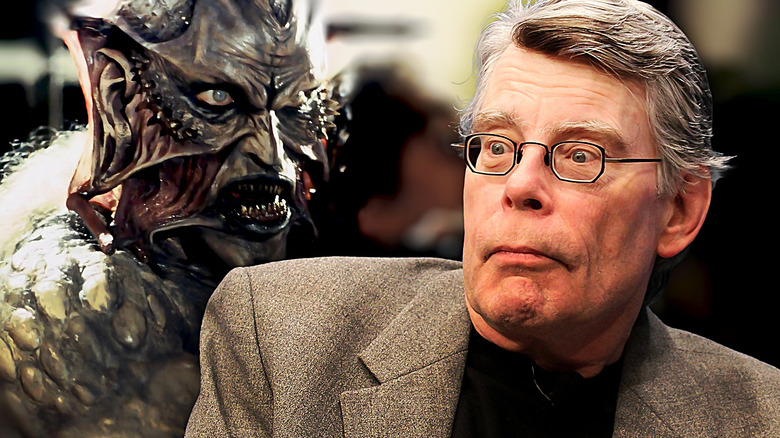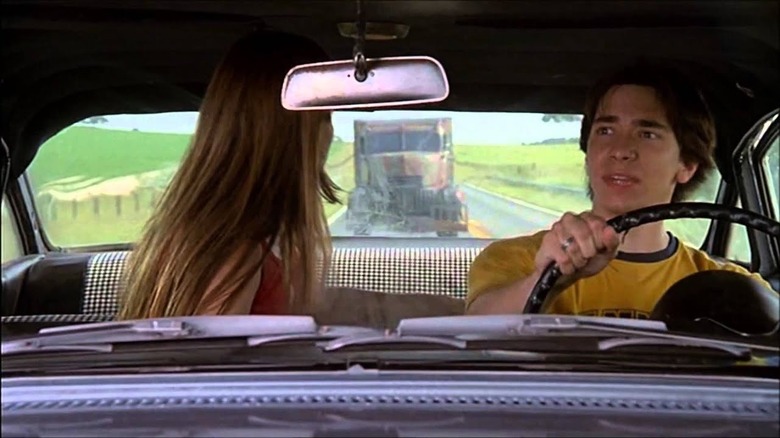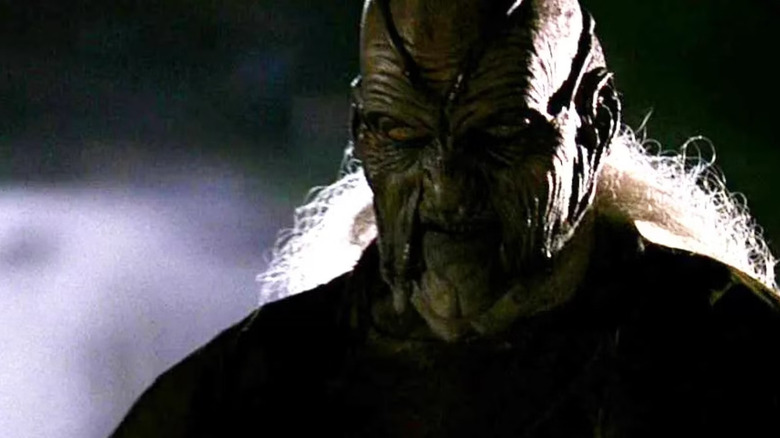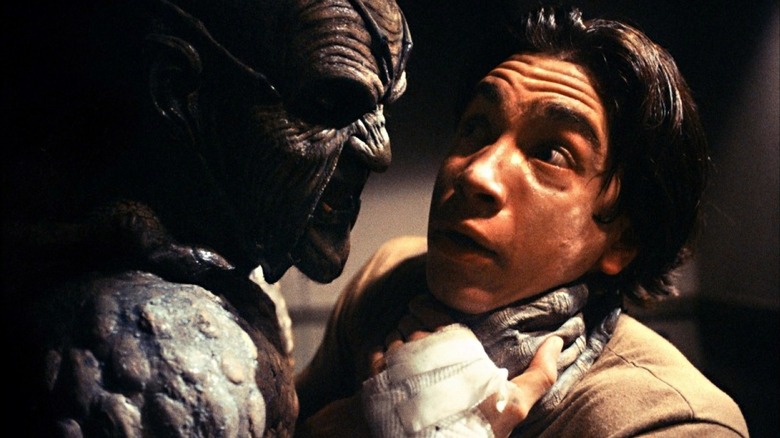The Controversial 2001 Horror Movie That Stephen King Recommends
Warning: the following story contains mentions of sexual assault.
Stephen King knows horror. For 50 years now, King has been terrifying readers with his best-selling tales of terror — books that have stood the test of time to become classics of the genre. So, whenever King weighs in on a horror title that he didn't write, people take notice. A recommendation from Stephen King is a recommendation from a master, and while some of King's tastes may be questionable (remember when he praised "The Flash" on Twitter before the movie was released? That was weird!), they're still worth some attention.
In 1981, King published "Danse Macabre," a non-fiction book in which he examined the horror genre in all its various forms. In 2010, the book was re-published with a new essay from King. In that essay, he not only wrote more about the horror genre, but he also ran through a list of recent horror movies that he recommends. The list includes great horror titles like "The Descent," "Scream," "Shaun of the Dead," and more. But there's one title nestled among the bunch that might cause some readers to do a double-take: "Jeepers Creepers."
Jeepers Creepers
Released in 2001, "Jeepers Creepers" follows two siblings, Trish (Gina Philips) and Darry (Justin Long), on a road trip through the Florida backwaters. While on their journey, the pair run afoul of a mysterious figure driving a threatening old truck. At first, Trish and Darry assume this is just some weird guy with road rage. As it turns out, the driver is a literal monster — a winged demonic figure known as the Creeper who stalks and eats young people. And now the Creeper has his sights set on these two.
"Jeepers Creepers" is an effective little horror pic. It draws on movies like Steven Spielberg's "Duel," and builds great tension. There are nifty little set pieces, like when Darry falls down a pipe into the Creeper's underground lair and finds it full of bodies. As a horror movie monster, the Creeper is pretty memorable. Sure, if you stop to think about it very long, it seems weird that a supernatural monster would bother to drive around in a truck (the truck also has a custom license plate — did the Creeper go to the DMV to get that?), but if you can overlook that sort of implausibility, there's plenty of ghoulish fun to be had. I remember seeing "Jeepers Creepers" in theaters the summer it came out and having a good time.
But there's a problem here. And that problem is the film's director, Victor Salva.
Victor Salva
Victor Salva's career began with the short horror film "Something in the Basement," which debuted in 1986. The film garnered plenty of acclaim and even caught the attention of legendary filmmaker Francis Ford Coppola. Coppola was so impressed with "Something in the Basement" that he gave Salva money to make a feature debut. That feature was "Clownhouse," a 1989 horror movie about three young brothers stalked by a group of escaped mental patients dressed as clowns. And this is where things get bad.
Before the film was released, Salva was convicted of sexually assaulting a 12-year-old boy who starred in the film. Salva videotaped the assault and additional child pornography was found in his home. The director was sentenced to three years in prison, but only served 15 months before being released on parole. You might this would've effectively killed Salva's career, but in 1995, two different films helmed by Salva were released. One was the direct-to-video thriller "The Nature of the Beast," the other was the sci-fi drama "Powder." "Powder" ended up being a financial success, but the film, which was distributed by the Disney-owned Buena Vista Pictures Distribution, garnered backlash due to Salva's involvement. And still, Salva kept working.
1999 saw the release of his film "Rites of Passage," and then "Jeepers Creepers" arrived in 2001.
Should we separate the art from the artist?
Stephen King does not shy away from Victor Salva's past when recommending "Jeepers Creepers." In "Danse Macabre," the author writes: "Victor Salva is a troubling, erratic director with a troubling, erratic history — including a conviction for sexual molestation of a child — but this tightly focused film about a brother and sister who run across a supernatural serial killer in northern Florida is relentlessly terrifying ... "
This raises an admittedly uncomfortable question that we've all had to ask ourselves a lot over the years: can we separate the art from the artist? More than that, should we? I honestly don't have a satisfactory answer here. I confess that I like plenty of films and other forms of art made by questionable individuals. It's kind of hard not to. The history of art is littered with people who created great works but performed terrible deeds.
For example: I think it's fair to say "Rosemary's Baby" is one of the best horror movies ever made. But one cannot escape the sexual abuse charges against director Roman Polanski. Woody Allen has been accused of sexually abusing his adoptive daughter when she was seven, although Allen has long denied the allegations. I'll freely admit that I think many of Allen's early movies are excellent, although I don't know if I can ever go back and rewatch them at this point. And as for "Jeepers Creepers," I agree with King that it's pretty damn good.
And yet ... you can't overlook Salva's history. I believe Victor Salva's career should've ended after "Clownhouse," and that fact that he kept working over the years is troubling — his most recent credit is 2017's "Jeepers Creepers 3," which I have never seen. Ultimately, I think the choice needs to be up to you, the viewer. If you find yourself watching "Jeepers Creepers" and enjoying it, I don't think that makes you a terrible person. Nor do I besmirch King for recommending the movie. But it's still worth asking the question: how should we approach art made by problematic people?



